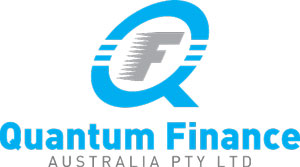
7 Key Benefits of Refinancing Your Home Loan
Updated: 30th April, 2025
Considering refinancing your home loan in 2025? It could be one of the smartest financial decisions you make this year—if done right. At Quantum Finance, we help you weigh the pros and cons so you can refinance with clarity and confidence.
With over 20 years’ experience in finance and access to major and specialist lenders, our team is here to help you assess if refinancing will reduce your repayments, shorten your loan term, or unlock valuable equity.
Quick Summary
- Save money by switching to a lower interest rate
- Access your home equity for renovations or investments
- Simplify your debts with debt consolidation
- Lock in a fixed rate for more budgeting control
- Potentially receive lender cashback offers
- Shorten your loan term and pay off your mortgage faster
- Reassess your loan features for better flexibility
What are the Benefits of Refinancing a Mortgage?
1. Lower Your Interest Rate and Monthly Repayments
One of the biggest benefits of refinancing a mortgage is reducing your interest rate. Even a small drop can lead to significant savings over time. Many clients we assist are able to save hundreds each month—which adds up to thousands over the life of a loan.
Tip: Use that saving to pay off your mortgage faster and reduce interest even further.
2. Switch From Variable to Fixed (or Vice Versa)
A refinance gives you the flexibility to change your loan type. If you’re feeling the pressure of rate rises, moving to a fixed-rate loan offers stability and peace of mind. On the other hand, if rates are expected to drop, switching to a variable option might suit your goals.
Curious about split loans? We explain them here.
3. Unlock the Value in Your Home With Equity Access
As property values grow, many homeowners gain equity they can use. Refinancing allows you to access those funds for renovations, investments, or even to consolidate higher-interest debts.
For example, if your home is worth $600,000 and you owe $350,000, you may be able to access a portion of that $250,000 difference—depending on lender terms and your serviceability.
Read our full guide to debt consolidation to see if this strategy is right for you.
4. Potential Cashback Offers From Lenders
Many banks and lenders are offering cashback deals—sometimes up to $5,000—for eligible refinance customers. These limited-time offers can help cover switching fees or simply provide a welcome financial boost.
Talk to our team about what offers are available and whether they suit your situation.
5. Consolidate and Simplify Your Debts
By rolling multiple debts into one home loan, you may reduce your overall interest costs and streamline your repayments. This is especially helpful if you’re juggling credit cards, personal loans, or car finance.
Just be cautious: extending short-term debts into a 30-year home loan could increase your total repayments over time.
6. Pay Off Your Mortgage Sooner
Many clients use refinancing to shorten their loan term while keeping repayments manageable. For instance, refinancing from a 30-year loan to a 20-year one—especially at a lower rate—could save you tens of thousands in interest.
Want to see what’s possible? Check out our refinancing pros and cons article.
7. Reassess Your Loan Features
Refinancing is also a great opportunity to switch to a loan with better features. That might include an offset account, redraw facility, or more flexible repayment options.
We also cover redraw facilities and how they compare to offset accounts on our blog.
What Are the Risks?
While refinancing offers many advantages, there are some potential downsides:
- Fees and costs: You may need to pay discharge fees, valuation fees, and application fees. If your savings are minor, these can outweigh the benefits.
- Lender’s Mortgage Insurance (LMI): If your new loan is more than 80% of the property value, you might trigger LMI again—even if you’ve paid it before.
- Reduced equity buffer: Using your home equity now might reduce your future financial safety net.
- Longer loan term: Consolidating debts into a 30-year home loan may reduce monthly repayments but increase long-term interest.
A good broker will help you run the numbers and ensure you’re making a financially sound move.
Is Refinancing Right for You?
The benefit of refinancing comes down to your personal goals. Are you looking to lower repayments? Pay off your mortgage sooner? Access equity for investment? Or just get a better deal than what your current lender is offering?
At Quantum Finance, we’ll take the time to understand your situation, assess your options, and guide you through the entire process—from comparison to approval.
Learn more about refinancing with us.
Call 1300 813 113 to speak with one of our experienced mortgage brokers today
